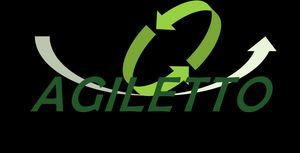Unlocking the Role: Nine Critical, Overlooked Competencies for Every Scrum Master

In today’s fast-paced, ever-evolving business world, are we truly recognizing the depth of skills a Scrum Master needs to succeed? It’s tempting to see the role as merely a facilitator of ceremonies or a process guardian, and many leaders and organizations do. Even some Scrum Masters I have met do. But this simplistic view is not just inaccurate—it’s a risk. As the demands of agile teams grow, so too must our understanding of what it takes to be an effective Scrum Master. Here, I have listed the nine essential competencies that every Scrum Master needs, challenging the notion that this role is as simple as it seems. So let's do it!
1. Facilitation Mastery: More Than Meetings

Facilitating daily stand-ups and retrospectives? Sure, that’s part of the job. But true facilitation mastery goes far beyond simply guiding team events. It’s about creating spaces where meaningful dialogue can happen, where teams feel empowered to self-organize, and where decisions are made with a focus on value. It involves creating a safe environment where diverse opinions can be expressed openly. Effective facilitation enables team synergy, fostering an environment where collaboration thrives. Yet, how many organizations train Scrum Masters to facilitate rather than just run meetings?
2. Coaching Ability: Developing People, Not Just Processes

Scrum Masters aren’t just there to keep the sprint on track—they're there to develop people. This means coaching team members on agile practices and guiding them through challenges. Unlike a manager, a Scrum Master helps the team unlock their potential and strive for continuous improvement and continuous learning. It’s about guiding, challenging, and believing in people, not directing them. How many Scrum Masters are empowered to coach effectively? Are we providing them with the space and resources to truly coach their teams?
3. Impediment Removal and Flow Optimization: Navigating the Roadblocks

Flow optimization isn’t just about removing blockers—it’s about creating a smoother path from idea to delivery. A Scrum Master must ensure that external roadblocks are cleared, solving issues that hinder the team's progress while respecting their self-organization capabilities. Additionally, they optimize the flow of value through the system, coaching the team to deliver high-value, high-quality work with a sustainable pace. It requires negotiation skills and stakeholder management to remove obstacles and streamline processes. Are your organization’s priorities geared towards optimizing flow, or are they stuck on managing resources?
4. Systems Thinking: Seeing the Bigger Picture

Agile is often seen as a team-level practice, but systems thinking is crucial for connecting the dots between team activities and broader organizational goals. Scrum Masters must understand how their teams fit within the larger structure, identifying dependencies and optimizing collaboration across teams. This perspective helps prevent siloed thinking and fosters a holistic approach to problem-solving. Are we underestimating the importance of this broader view?
5. Servant Leadership: A Different Kind of Leader

Servant leadership might sound soft, but it’s one of the toughest forms of leadership to master. It requires a commitment to putting the team’s needs above your own, building an environment of trust and safety. It’s about empowering the team, not directing them—removing distractions so they can focus on delivering value. This approach is core to the Scrum Master role, yet many organizations still favor command-and-control management styles. Are we equipping Scrum Masters to lead through service?
6. Change Agent: Championing Transformation

Scrum Masters are more than team guides; they are change agents for the entire organization. They must lead the cultural shifts necessary for agile to take root, creating an environment that embraces new ways of working. This requires not only understanding change management models like Kotter’s but also having the practical experience to guide a team through resistance. Are companies supporting Scrum Masters in becoming effective change agents, or are they stuck in old habits?
7. Continuous Learning Advocate: Never Stop Improving

Agility isn’t just about delivering software—it’s about continuous learning. Scrum Masters must model this mindset, encouraging their teams to experiment, learn from failures, and integrate feedback, based on facts. They are the custodians of a learning culture, fostering an environment where curiosity is valued over complacency. Some organizations say failure is not an option. A good Scrum Master says we never fail, we only learn. But how many organizations allow their Scrum Masters the time to focus on learning? If we truly value improvement, we need to prioritize learning as much as we do delivery.
8. Emotional Intelligence (EQ): The Soft Skill That’s Hard to Master

Navigating the emotional dynamics of a team is not an easy task. A Scrum Master must cultivate emotional intelligence—the ability to read a room, recognize stressors, and offer support. EQ is crucial for maintaining a psychologically safe space where team members feel comfortable taking risks and being vulnerable. Imagine a situation where the team faces tension after a failed sprint. A Scrum Master with high EQ can guide the retrospective from blame to shared learning, turning a setback into a powerful moment of growth. Yet, many organizations still reduce this role to “scrum police,” missing the opportunity to leverage their potential in removing deeper, systemic obstacles. Are we giving Scrum Masters the tools to develop this critical skill, or are we overlooking the human element of Agile?
9. Agile Championship: Beyond Scrum

A great Scrum Master knows that one size does not fit all in Agile. Beyond mastering Scrum, they must adapt principles from frameworks like Kanban, SAFe, XP, or LeSS, tailoring their approach to the team’s needs. This role goes further—teaching and mentoring not only the team but also stakeholders and managers, ensuring everyone understands agile principles and practices. This helps create alignment and foster a culture of agility across the organization. Yet, many organizations keep their Scrum Masters focused on mechanics, missing the opportunity to leverage their broader adaptability.
Are We Missing the Mark on the Scrum Master Role?
These nine competencies, together with an open mindset, form a robust foundation for a successful Scrum Master. But the real question is, why are so many organizations failing to recognize their importance? By reducing the role to a process enforcer or meeting facilitator, we’re underestimating the profound impact a well-rounded Scrum Master can have. It’s time to rethink how we support this role. Are we ready to invest in the skills and competencies that enable true agile transformation?
The challenge to leaders: Are you investing in training programs that go beyond process adherence, focusing on advanced coaching or systems thinking? Are you giving Scrum Masters the time and space to focus on continuous improvement? If not, it’s time to reimagine this role and unlock its full potential.
The challenge to Scrum Masters: Which one of the nine competencies do you struggle with the most? What can you do tomorrow to improve?
Last updated May 27, 2025
